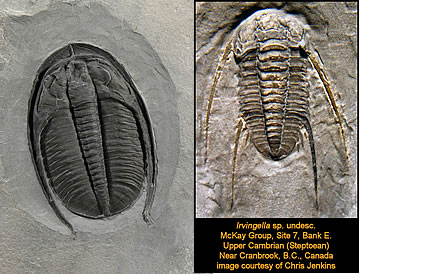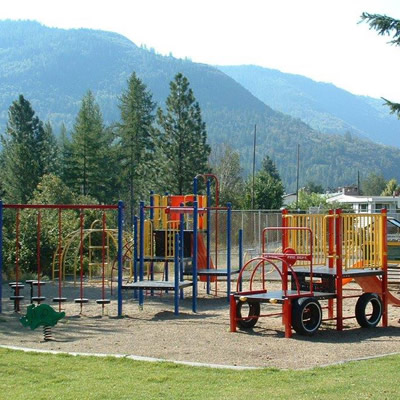Crack open a fossil in the name of science

This summer, visitors to Fort Steele can help researchers discover and record the fossils of trilobites, which are marine animals that lived in the area half a billion years ago.
Visitors to Fort Steele help scientists research ancient marine animals in this CBT-supported project.
Visitors to Fort Steele this summer will have the unique opportunity to discover and take home fossils of ancient marine
animals called trilobites during the Trilobite Fossil Research Clinic, supported in part by a $17,000 contribution from Columbia Basin Trust (CBT). At the same time, they'll be helping scientists understand the geological and paleontological wonders that exist within the area.
"CBT is proud to support this project that is educating Basin residents, visitors and scientists about the region's past, and which will also provide scientific information that supports future studies in this field of research," said Jennifer Krotz, CBT community liaison.
Scientists have known for a long time that trilobite fossils are abundant near Cranbrook. However, there have been no scientific studies to date to determine the extent of the fossils, their types and their scientific significance. Visitors to Fort Steele are now invited to crack open rocks to find trilobite fossils, while scientists on site record the fossils for research purposes. If the trilobite is a common find, the visitor can take it home. If it is rare, the fossil will be kept for further study and the visitor can choose a different fossil to keep.
"This is a great chance for people to discover the early life forms that existed half a billion years ago in the southeast region of BC," said Chris Jenkins, a member of the Trilobite Research Project, the group hosting the clinic. "One boy has already discovered a rare trilobite, possibly a new species altogether. We encourage people to come and discover more."
The Trilobite Research Project is a collaboration of the following partners: Chris Jenkins, the Fort Steele Historical Society, College of the Rockies, Rocky Mountain School District No. 6 and the Burgess Shale Geoscience Foundation.





Comments